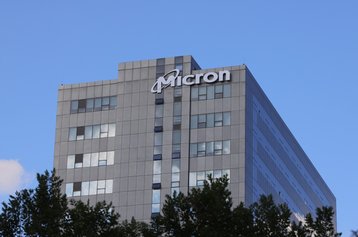The Department of Commerce has reached a binding agreement with Micron to award the company $6.165 billion in direct funding under the CHIPS and Science Act.
In a statement, the department confirmed the funding will be used to support the construction of three new memory chip fabs: two in Clay, New York, and one in Boise, Idaho, which the company started construction on in 2023.
It was initially announced in April that Micron was set to receive $6.14bn under the act. Micron has pledged to invest approximately $100 billion in New York and $25 billion in Idaho, which will create approximately 20,000 jobs.
In addition to the $6.165bn in direct funding, the Biden administration also announced it has signed a separate non-binding Preliminary Memorandum of Terms (PMT) with Micron which could see the company awarded up to $275 million in additional proposed funding to expand and modernize its facility in Manassas, Virginia.
According to the Department of Commerce, that funding would allow the company to onshore its 1-alpha advanced DRAM process technology at its Manassas facility, significantly increasing monthly wafer output.
“As the only US-based manufacturer of memory, Micron is uniquely positioned to bring leading-edge memory manufacturing to the US, strengthening the country’s technology leadership and fostering advanced innovation,” said Micron president and CEO Sanjay Mehrotra. “Micron’s investments in domestic semiconductor manufacturing capabilities, supported by the bipartisan CHIPS Act, will help drive economic growth and ensure that the US remains at the forefront of technological advancements.”
Micron is the fourth company to have finalized its CHIPS Act funding agreement with the outgoing Biden administration. In early November, TSMC and GlobalFoundries were awarded $6.6bn and $1.5bn respectively in direct funding and later that same month, Intel was awarded $7.865bn, a reduction to the $8.5 billion in direct funding the chipmaker was preliminarily awarded back in March.
The $280 billion CHIPS and Science Act was approved by Congress in July 2022, with $52 billion of the overall funding package designated as subsidies for US semiconductor manufacturers. Funding from the act has also been earmarked for semiconductor R&D, growing a skilled semiconductor workforce, and incentives for the manufacturing of semiconductors and specialized tooling equipment.
However, in the run-up to the election, Trump has criticized the CHIPS and Science Act, saying that the government should have levied tariffs on the semiconductor industry instead of handing out grants and loans to chip companies.
Given his re-election, it now remains to be seen whether Trump will scrap the act altogether or make changes to the bill.







